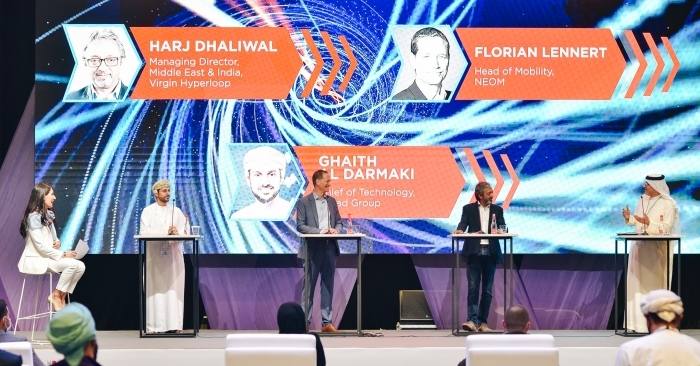World's supply chain woes to ease by early 2022
The current woes stress testing international supply chains will be over early next year, according to Mohsen Ahmed, CEO-Logistics, Dubai South.

November 4, 2021: The current woes stress testing international supply chains will be over early next year, according to Mohsen Ahmed, CEO-Logistics, Dubai South.
Addressing Hypermotion Lab – one of three unparalleled industry conferences at Hypermotion Dubai, the Middle East edition of the German-initiated industry convex which reimagines the transportation and logistics industries – Ahmed defined 2021 as the “independence day” for the logistics industry.
Consigning current global logistics dilemmas to pandemic-induced disruption in labour forces, container shortfalls and equipment shortages, Ahmed said; “We are now moving. The current supply chain disruption is a short-term scenario. In 2022 things will normalize and will ease up in transportation across the globe.”
Dubai, said Ahmed, was able to largely side-step the logistics problems largely due to the agility of Emirates Airline which quickly converted some of its passenger capacity to cargo at the outbreak of Covid-19.
Other companies which emerged largely unscathed, he said, were those who had embraced digitalization pre-pandemic; “They stood out for their quick response providing good visibility on inventory and transportation,” he added.
Hypermotion Lab, which runs within Hypermotion Dubai at the spectacular new Dubai Exhibition Centre at Expo 2020 until November 4, has unveiled a blueprint for the future logistics and urban transportation industries with experts proffering a range of innovations currently being progressed.
Harj Dhaliwal, managing director, Middle East & India of Virgin Hyperloop disclosed the company is currently working with DP World to move into the cargo and logistics sectors alongside passenger transport.
“The pandemic exacerbated consumer behaviour where we want things now to be delivered in hours, not days or weeks, which has supercharged the e-commerce sector. There is a need to grow express freight and we are looking at how we can translate this into opportunity using technology like ours and we are working with DP World to see how we can move now into cargo and logistics,” he explained.
He added: “Eight to 10 years from now autonomous vehicles will drive efficiencies because they will connect trunk lines and integrate into the overall satellite system to be able to handle routing.”
Florian Lennert, head of mobility for NEOM – Saudi Arabia’s new future linear city – said multi-modal passenger and freight systems would define the future and help control traffic and emissions in an age of pressing sustainability demand.
“There are problems emerging from the rise in e-commerce and an immediate demand in that too many trucks can be delivering too little too often. We have to bundle this in some way. We have to advance mobility to build liveable cities, which will mean looking at the urban design side to deliver cities with 10-minute access and use of urban air mobility technology including drones,” he said.
Meanwhile Ghaith Al Darmaki, chief of technology of the Asyad Group – the Omani integrated logistics solutions provider – revealed that his company is piloting blockchain technology “requiring all our partner communities to work together in one network.”
“Technology is the backbone of Asyad and enabled us to weather the pandemic by adopting new business models which made us resistant,” he disclosed. “In addition, because of our geographic position, we were in a better position to mitigate the risks of disruption besetting China and the USA.”
Dubai South’s CEO said the industry had lessons to learn from the pandemic – including the ending of reliance on single nation suppliers and the building of local and regional manufacturing hubs. “Companies are now looking at sourcing around the world. This began pre-pandemic, but the pandemic taught many the cost of having all their eggs in one basket. Risk discussion is now taking place at boardroom level,” he maintained.
Hypermotion Dubai, which is organized by Messe Frankfurt Middle East, is a thriving hub of technology game-changers revolutionising four of the Middle East’s key economic sectors – transport, logistics, mobility, and materials handling via its co-located Materials Handling Middle East 2021 trade show.
Hypermotion Lab runs alongside two other conferences – Smart Mobility and Scalex – which together feature over 150 change-makers addressing autonomous transport, urban air mobility, next-generation connectivity, the reshaping of the mass transit industry as well as supply chain and logistics excellence including last-mile delivery.



